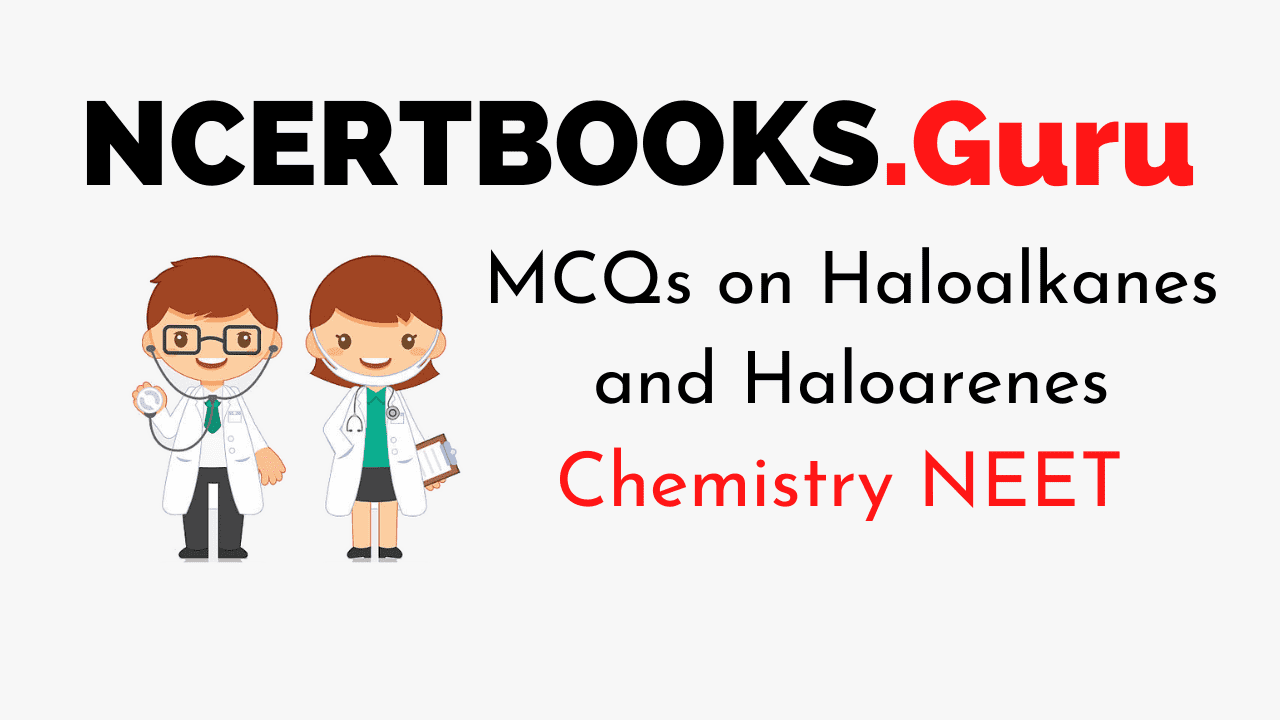NEET Chemistry is the scoring paper in the medical entrance examination. Here, you will discover the NEET Chemistry MCQ Questions for all Concepts as per the latest syllabus. Practice more on a regular basis with these NEET Chemistry objective questions on air pollution and improve your subject knowledge & problem-solving skills along with time management. NEET Chemistry Haloalkanes and Haloarenes Multiple Choice Questions make you feel confident in answering the question in the exam & increases your scores to high.
MCQs on Haloalkanes and Haloarenes
1. Which of the following undergoes nucleophilic substitution exclusively by SN1 mechanism?
(a) Benzyl Chloride
(b) Ethyl chloride
(c) Chlorobenzene
(d) Isopropyl chloride
Answer
Answer: (a)
2. The increasing order of nucleophilicity would be?
(a) Cl– < Br– < I–
(b) I– < Cl– < Br–
(c) Br– < Cl– < F–
(d) I– < Br– < Cl–
Answer
Answer: (a)
3. Which of the following is most reactive towards SN1 reaction?
(a) C6H5C(CH3)C6H5Br
(b) C8H5CH2Br
(c) C6H5CH(C6H5)Br
(d) C6H5CH(CH3)Br
Answer
Answer: (a)
4. CH3CH2CH2Br + NaCN → CH3CH2CH2CN + NaBr, will be fastest in
(a) ethanol
(b) methanol
(c) N, N-dimethylformamide
(d) Water
Answer
Answer: (c)
5. A Grignard reagent may be made by reacting magnesium with
(a) Methyl amine
(b) Diethyl ether
(c) Ethyl iodide
(d) Ethyl alcohol
Answer
Answer: (c)
6. C-Cl bond of chlorobenzene in comparison to C-Cl bond in methyl chloride is
(a) Longer and weaker
(b) Shorter and weaker
(c) Shorter and stronger
(d) Longer and stronger
Answer
Answer: (c)
7. A solution of (+) 2-chloro-2-phenylethane in toluene racemises slowly in the presence of a small amount of SbCl5, due to the formation of
(a) carbanion
(b) carbene
(c) free radical
(d) carbocation
Answer
Answer: (d)
8. The decreasing order of boiling points of alkyl halides is
(a) RF > RCl > RBr > RI
(b) RBr > RCl > RCl > RF
(c) RI > RBr > RCl > RF
(d) RCl > RF > RI > RBr
Answer
Answer: (c)
9. Phosgene is commonly known as
(a) thionyl chloride
(b) carbonyl chloride
(c) carbon dioxide and phosphine
(d) phosphoryl chloride
Answer
Answer: (b)
10. The reaction of tert butyl bromide with sodium methoxide produces mainly
(a) isobutane
(b) isobutylene
(c) tert-butyl methyl ether
(d) sodium tert butoxide
Answer
Answer: (b)
